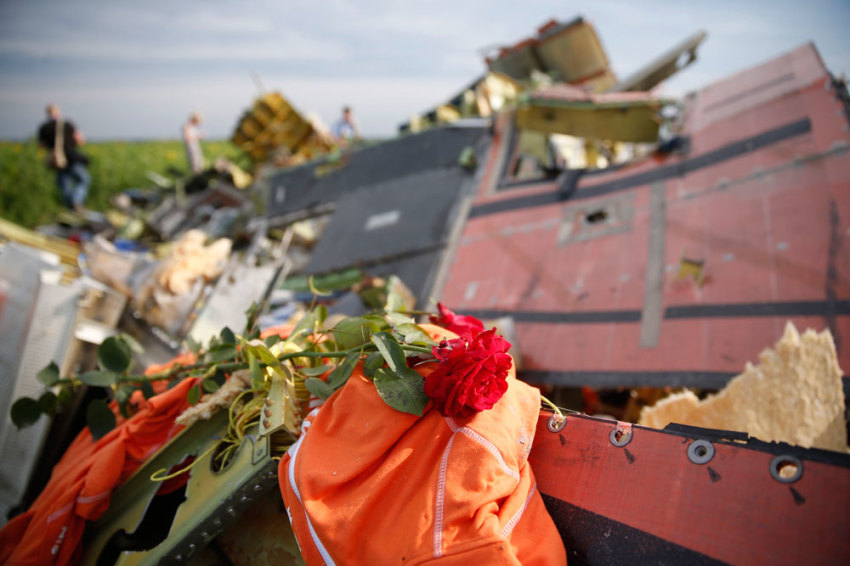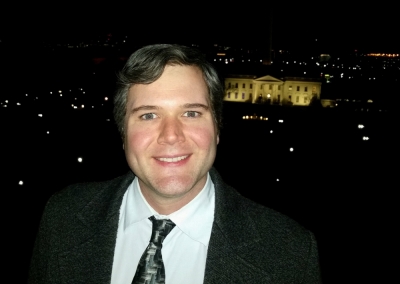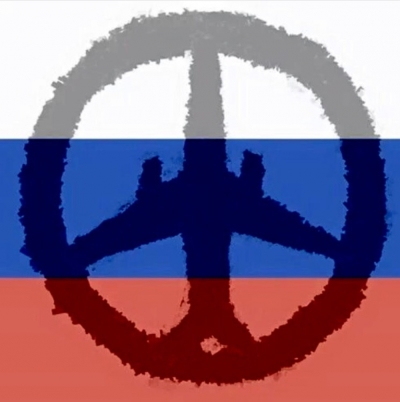Pray for Russia, Too

After the Paris attacks, a translucent French flag began to cover profile pictures across Facebook, and on Instagram over 70 million users in 200 countries expressed their prayers using #PrayForParis, #PrayersForParis, #PeaceForParis, and similar hashtags. These simple gestures became a widespread show of solidarity with France and against the Islamic State (ISIS).

Yes, someone could do much more to help, and profile pictures did nothing to defeat ISIS. Yet the spontaneous gesture was a powerful symbol that showed the global community's sympathy. It helped create an "imagined community" standing alongside France and stretching across national borders. Such symbols are essential to keep a community together. In this case, a global community.
Praying for someone who is seen as part of our community can be an easy, almost therapeutic reaction. In contrast, praying for someone who is seen as an "other," an enemy, or an antagonist can be quite difficult, sometimes even painful.
Meanwhile, some people may have difficulty separating a country's government, whose crimes and abuses deserve great criticism, from the country's citizens, who have suffered from a tragedy and deserve prayers.
Yet for Christian citizens, prayer should be the first reflex whenever tragedies occur, whether they occur in a country that is seen as a friend — like France — or in a country that is seen as an antagonist — like Russia.
There are easy explanations for why France is seen as part of our community and why French solidarity messages spread so quickly on social media. Perhaps most importantly, France is viewed as a liberal democracy defending "civilization," whether Western or otherwise, against illiberal movements that would dismantle essential liberties, like freedom of speech. Moreover, though some Americans view the French as military weaklings, others recognize that the French police, intelligence, and military have been actively fighting jihadists at home and abroad. Finally, many Americans have been to Paris, or they at least think fondly of the city thanks to movies and TV shows. Most Americans are unable or do not wish to travel abroad, so this last point is likely the least significant explanation.
However, all of these reasons demonstrate France's "soft power," which then reveals a stark difference between France and Russia.
France was not the only nation to lose citizens in a recent ISIS terrorist attack. On October 31, 224 people, mostly Russians, died when a simple bomb downed Metrojet Flight 9268 over Sinai.
There were the basic news reports and pundit chatter for a day or two, but there were sparse public signs of solidarity with the Russian people. Few important buildings were illuminated with the Russian flag in the same way the French flag was illuminated onto One World Trade Center, Sydney Opera House, Wembley Stadium, Kuwait Towers, and others (though the Khufu Pyramid illuminated the Egyptian, French, Russian, and Lebanese flags after the Paris attacks).
Quite frankly, few in the West seemed to give a damn about the Russians.
To be fair, the Metrojet bombing and the Paris attacks were two different kinds of theatre. The Paris attacks were a drawn-out spectacle across multiple locations that required careful coordination. The media could bring out cameras and give live reports like a sports broadcaster giving a play-by-play. In contrast, the Metrojet victims died suddenly in the early morning while most Americans and Western Europeans were still asleep. No one was there to post live tweets or record videos.
Yet even if the Paris attacks had occurred in Moscow, few Russian flags would have appeared on Facebook walls.
There are other reasons why the global community showed solidarity with France but not with Russia. Unlike France, Russia is viewed as an illiberal force threatening "civilization" and essential civil liberties like freedom of speech.
Vladimir Putin's kleptocratic government overturned international norms by annexing Crimea. Russian-backed separatists in eastern Ukraine shot down Malaysia Airlines Flight MH17. Putin's support for the mass-murderer Assad has angered Westerners. All the while, Kremlin-controlled media outlets promote propaganda that blatantly contradicts evidence which media outlets in countries with explicit freedom-of-speech rights have reported on.
These and others actions have created a mentality which sees Russia as an outsider. In contrast, France is one of "us".
This mentality has caused some in the West to show callousness towards Russia generally instead of to the government specifically.

After the Paris attacks when I finally noticed someone post a "Peace for Russia" message, multiple comments were left saying they would pray for Russia only when Russia admitted its role in the MH17 downing. Comments left by "trolls" would be insignificant, but others have told me they feel schadenfreude whenever something bad happens to Russia, even if the events hurt the Russian people.
Though this psychology can be understood, it must be challenged and questioned.
There should be a stark difference between how someone feels about the Russian government, with its kleptocracy and other crimes, and how someone feels about the Russian people. After all, Russian people like Sergei Magnitsky have suffered more from Putin's government than most Americans or Western Europeans ever could.
So, yes, pray for Russia, and especially for the Russian people, just as one might pray for France, Beirut, Mali, Syria, Iraq, Turkey, Libya, Yemen, Tunisia, San Bernardino, and anywhere else ISIS may attack. If someone feels grief for any of these other victims but not for the Russian victims, he or she should understand why.
Admitting one's callousness and addressing it is much better than letting it fester into a worse hatred. So, yes — pray.



























